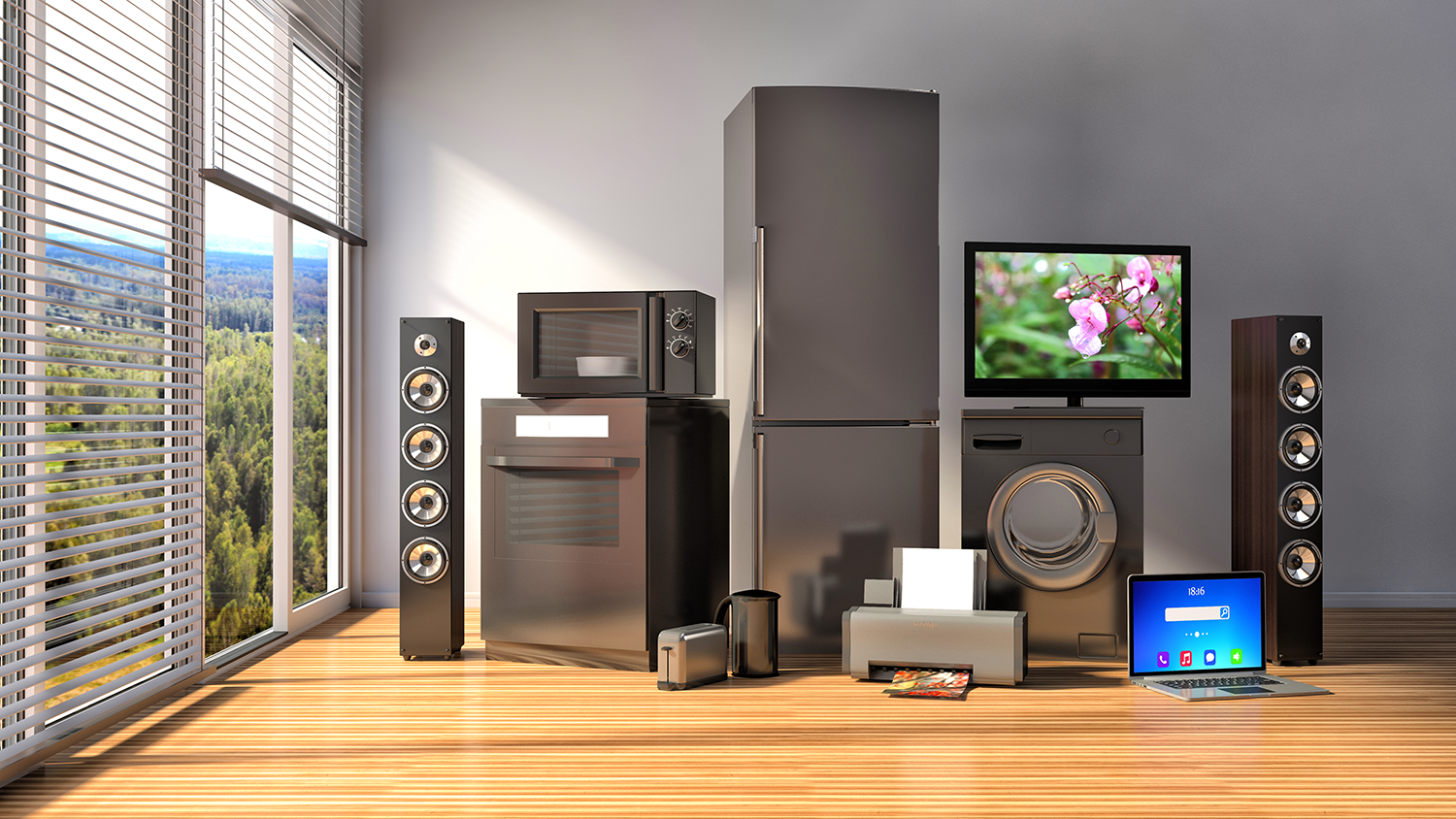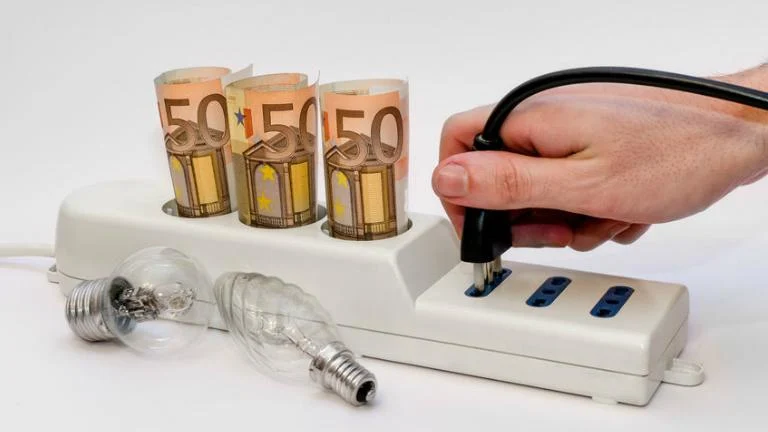How much electricity does your house use? It is a common question that comes up when we get our monthly electricity bills. We all know that electricity is vital to our daily lives, powering our homes and enabling us to do various daily tasks. However, understanding how much electricity a house uses and the factors that affect its usage can be a real eye-opener.
This post will explain the average household electricity consumption, whether you are a concerned homeowner trying to make sense of your electricity bills or a sustainability enthusiast trying to reduce your environmental footprint.
Read on!
What is the Average Size of a House?
To determine the average electricity usage per household in the United States, we will first need to know the average size of a house.
Image Source: theplancollection.com
According to U.S. Census data, the average size of a single-family home is 2,261 square feet. In 1973, the average median size of a home in the United States was 1,660 square feet.
So, assuming the older, smaller houses are still around and accounting for the newer, much larger houses, the average-sized home is about 2,000 square feet (1600 + 2261) / 2 = 1960.5).
House sizes can vary significantly between countries and regions on a global scale. For example, in countries like the United Kingdom, a house’s average size usually ranges from 800 to 1000 sq ft. In contrast, the average house size in Canada and Australia exceeds 2,000 square feet.
How to Calculate Your Average Household Electricity Consumption?
To calculate your household energy consumption, use this formula:
Kilowatt Hours Used Multiplied by Cents per Kilowatt Hour divided by 100 = Electric Bill
Note that household electricity consumption is only part of the equation. Other costs, such as recurring fees, may be incurred in addition to the energy bill. These are usually fixed and don’t depend on your energy usage. Still, lowering energy usage will save you money and minimize environmental effects.
Image Source: footprinthero.com
Electricity use at home is often measured in kilowatt-hours. Each kilowatt-hour (kWh) of electricity is equivalent to one hour of labor from your household appliances. The higher the workload, the higher the energy requirements of the appliance. Most appliances have a wattage label on the back that indicates how much energy they consume; multiply this figure by the number of hours per month the appliance uses to get the watt-hour usage.
For instance, if you use your 3000-watt room heater for four hours daily, you will consume 3000 watts x four hours x 30 days =360,000 Wh/Month ÷ 1000 = 360 kWh per month. This is simply an estimate.
The power on the label is referred to as the nominal power. The actual energy consumption is referred to as effective power. For instance:
The label of a pace heating appliance says that it uses 1500 watts. This means the appliance uses 1500 Wh (1.5 kWh) for one hour of continuous run time. However, you will notice that the appliance operates for 10 minutes and then switches off for 5 minutes (for instance). This means the effective power used in an hour is 1000 Wh or 1 kWh.
Now, multiply the sum of your average kWh consumption by the average rate you pay per kWh. For instance, say you live in Ohio, where the standard electricity tariff is 8.88 cents per kWh.
So, if your usual monthly usage is 800 kWh at 8.88 cents, your average monthly energy bill is $71.04. Of course, this doesn’t include your local or state taxes and other additional fees you usually see on your monthly invoice.
What Are the Factors Affecting Your Home’s Electricity Usage?
Since every house is built differently with different occupants, each will have different energy usage. Understanding the factors that affect your consumption helps determine why your home consumes more or less energy than the national average.
Image Source: bria.com.ph
1. Size of Your Home
The size of your house will affect your average electricity consumption. For instance, larger homes often use more energy than smaller ones since a bigger space requires more energy to heat and cool.
2. Your Home’s Building Materials
Materials used in the building of older homes are often less efficient, allowing heat to escape or enter the house. This means you will use more energy when heating and cooling your home.
3. Types of Appliances
The type of appliances in your house can also affect how much energy is used. For instance, appliances that carry out energy-intensive tasks will use more energy. Conversely, energy-efficient appliances often use less electricity.
4. Number of Appliances
Home appliances require energy to work. If you have many home appliances, expect your average power usage levels to be higher.
5. Frequency of Use of Appliances
Energy is used each time you use a home appliance. That is why it is wise to minimize appliance usage wherever possible. For instance, running a budget dishwasher when it’s full.
6. Number of Residents
Everyone consumes energy at home, whether for charging electronics or preparing food. Consequently, the more people living in your house, the higher the average home power usage will be.
7. Geographic Location
The average annual electricity consumption depends on where you live. For instance, if you live in a region with milder weather, you will likely be able to heat your home more effectively than someone who experiences more extreme temperatures.
Energy-Saving Tips to Reduce Your Home Electricity Consumption
Now that we know how to calculate average home power usage let’s consider minimizing consumption. There are many energy-saving ways, and each of them is important.
Image Source: choice.com.au
1. Invest in Energy-Saving Appliances.
Investing in energy-efficient appliances such as a space heater is an ideal way to take control of your home’s energy usage. When shopping, ensure the appliances have the yellow ENERGY STAR® certification. These appliances usually use less energy than standard models and may qualify you for rebates.
2. Unplug Electronics When Not in Use.
If you are concerned about your home’s energy usage, you can unplug your electronics when not used. This will help you ensure devices use the least amount of power possible.
3. Adjust Your Energy Usage Habits.
Whether running fewer loads of laundry or something as easy as switching off the lights when you leave a room, adjusting your energy consumption habits can significantly reduce your average annual consumption. Reducing your streaming services or gaming console usage is a good starting point. You may not know it, but the electricity consumption of streaming services can be substantial.
More energy is saved when you limit the use of these services and devices.
4. Automate Your House with Smart Devices.
Another way to minimize electricity consumption in your home is by using smart technology to automate your home appliances and other aspects of your home. And, since some devices usually allow monitoring and adjusting energy usage remotely, this can be handy, especially for those who are often on the go.
5. Insulate Your Walls, Roof, and Attic.
Image Source: propertyguru.com
If it’s not insulated correctly, your house will lose some of the cold or hot air your heating and cooling systems produce. Consequently, your air conditioner and heater will have to work harder to maintain your home’s temperature, increasing your electricity consumption. To avoid this, we recommend ensuring your house is adequately insulated, including the walls, roof, and attic.
6. Schedule a Home Energy Audit.
Having an expert do a home energy audit can help you take greater control over the amount of electricity you use. The expert will provide insight into your electricity usage patterns and recommend adjustments to reduce your usual power bills.
A home energy audit can be a valuable investment, leading to long-term energy savings and a more comfortable living environment.
Frequently Asked Questions: How Much Electricity Does a House Use?
1. How Much Electricity Does a Whole House Use?
The average American household electricity usage is about 10,632 kilowatt-hours (kWh) of electricity per year, according to the Energy Information Administration (EIA). That translates to 29,130 watts (W) per day, or 1,214 W per hour on average.
2. How Much Electricity Does a House Use Per Day?
The amount of electricity a house uses per day depends on several factors, such as the size of the house, the energy efficiency of appliances, and the number of occupants, to mention a few. A typical American household uses 29,130 watts of electricity per day.
3. How Many KW Does It Take to Run a House?
The number of kilowatts (kW) needed to run an average house size depends on factors such as the number and type of appliances, the occupants’ lifestyle, and the home’s energy efficiency, to mention a few. A typical American household uses 10,632 kilowatt-hours (kWh) of electricity annually.
4. How Much Power Does a Home Use in a Month?
To determine the average home power usage in a month, multiply the average daily power usage in kilowatts by the number of days in that particular month. A typical American household’s average daily power consumption is about 29.130 kilowatt-hours (kWh) per day. So, the power usage will be 29.13 kW (average daily consumption) x 30 days (average month) = 873.9 kWh per month.



















